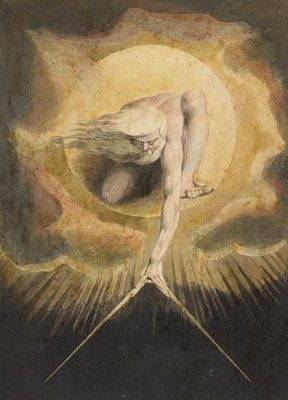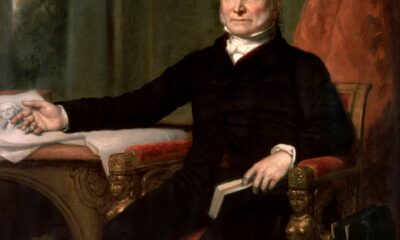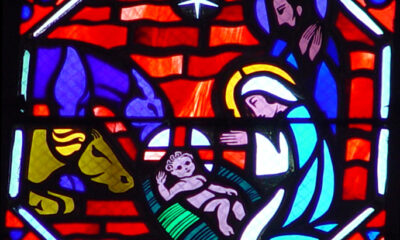Creation Corner
Theological riddles for creationists—and their answers

On 24 June 2015, one Tyler Francke posted “Ten theological questions no young-earth creationist can answer.” In his own comment space, several young-earth creationists did answer them. He rejected their answers, per his own arbitrary criteria. Now your editor will answer them. But he will not publish these answers in his comment space. If he wants to follow the ping and register as a user to comment in this comment space, let him. (Subject always to common rules of etiquette.)
His theological background, such as it is
Tyler Francke created a web log he calls God of Evolution: Theology with an Attitude. He claims membership in that class of equivocators calling themselves theistic evolutionists. Herewith his Statement of Faith. He makes a good statement—a surprisingly good one in view of his other activities. For he negates that statement with his other writings.
His “Ten Theological Questions No Young-earth Creationist Can Answer” form a case in point. In his explanation of his questions, he says little about the literal creation. Indeed he says nothing about the physical evidence for a literal creation. Instead he mocks key lessons from Genesis chapters 1, 2, and 3. Those lessons go to the heart of the Christian faith. His mockery proves one cannot serve two masters, as Jesus said.
The theological answers
Below your editor presents the ten theological questions, and their answers. Lawyers will recognize this as a written interrogatory, a device from pre-trial discovery. (Your editor is not a lawyer, but has had experience with suits at common law, and pre-trial discovery.) Lawyers always present their clients’ answers with objections, when the questions merit them. An attorney retains the right to object when appropriate, same as at deposition or at trial.
Life and death for humans and animals
Q. What was the point of the Tree of Life?
A. Objection: incompetent, irrelevant and immaterial. These questions are supposed to show how the creation model comes a cropper with certain theological questions. This question does not relate to creationism at all.
Without waiving my right to refuse to answer:
The two trees of life and of knowledge of good and evil were part of a test for the first man and the first woman: would they choose obedience? And would they rate eating of one of them (life)?
When Eve, then Adam, ate from the tree of knowledge, they committed the first sin. Death came into the world with that act. So God withholds the Tree of Life from fallen man until his ultimate redemption. God presaged that when He sentenced the serpent to eternal combat “between you and the woman, and between her Seed and thy seed.” I capitalize Seed to refer to Jesus Christ Himself.
He, of course, will explain all, to anyone’s possible satisfaction, at the proper time.
Q. If human sin is the reason animals die, why cannot animals be saved?
A. Objection, on the same grounds. Without waiving my right to refuse to answer:
The introduction of physical death into the Animal Kingdom with the Fall of Man says nothing about condemning an animal’s soul. Animals do not have souls. The Bible nowhere says they have.
Why death remains a part of life today even for Christians
Q. If physical death is part of the punishment for sin, why do Christians still die?
A. Objection, on the same grounds. Without waiving my right to refuse to answer:
The question assumes without warrant, and indeed incorrectly, that salvation must include immortality. Forgiveness of sins rarely removes all their consequences. Nor is physical death even the worst punishment for human sin. The worst punishment is spiritual death–eternal separation from God. Now part of redemption happens to be the crafting and issuance of a new, spotless physical body. But that will come during the “end times” to come. (Obiter, those “end times” might come sooner than the questioner thinks.)
Q. Why was Eve named “mother of life”?
A. Objection, on the same grounds. Without waiving my right to refuse to answer:
This nickname refers to her role as mother of the future generations of humankind, that is all.
Q. How did Adam and Eve know what death was?
A. Objection, on the same grounds. Without waiving my right to refuse to answer: in fact Adam and Eve might have been confused on that point. They might have thought the “sure death” would be instantaneous. God never said they would die instantly. He said they would begin a process that would end in death. “Dying you shall die.” That’s actually how the Hebrew expresses it. This apparent repetition—actually a present participle with an imperfect (how the Hebrews expressed future events)—denotes such a process.
But they did not physically die—immediately
Q. If the punishment for eating from the tree [of knowledge of good and evil] was that Adam and Eve would physically die, why didn’t they physically die?
A. Objection, on the same grounds. Without waiving my right to refuse to answer:
Who said they did not physically die? They are, indeed, dead—and in fact they died long before the Flood. On the day they ate of that tree, they began a process that ended in death. See above. In other words, on that day they sealed their fates.
A literal talking serpent? Yes.
Q. Can you name any other piece of literature in which the existence of a talking snake and trees with magical powers would suggest to you that it was meant to be taken literally?
A. Objection, on the same grounds. Without waiving my right to refuse to answer:
The one-of-a-kind nature of this story does not negate its truthfulness or its value. Besides, the account came directly from Adam. It is part of the Annals of Adam. (Obiter: Genesis 5:1(a) should read: Here ends the Annals of Adam. That statement is a colophon, or a final statement at the end of a record.)
Q. Why do Genesis 1 and 2 contradict?
A. They don’t. This question has a faulty premise. Genesis 1:1-2:4(a) constitute the Annals of Creation. Adam begins his own account at Genesis 2:4(b). The Toledoth Hypothesis explains this best of all. (Obiter: perhaps Mr. Francke follows the Documentary Hypothesis. That alleges that four different authors, or sets of authors, had a hand in writing the Five Books of the Law. The four groups have the names Jehovists, Deuteronomes, Elohists, and Priests—hence JDEP Hypothesis, another name for it. I object to this hypothesis as another attempt to deprecate Scripture.)
Q. Why is incest wrong?
A. Objection, on the same grounds as to the first question above. Without waiving my right to refuse to answer:
Incest is wrong because God said it was wrong. Mr. Francke now treads on the dangerous ground of theodicy—an attempt by puny man to judge God. In answer I offer Job 38:3 and following.
Divine instruction
Q. If it is so vitally important that Christians take Genesis literally, why did Jesus [Christ] never once instruct us to take Genesis literally?
A. Objection. Assumes facts not in evidence and indeed asserts “facts” contrary to Fact and Evidence. Jesus did in fact so instruct us. He instructed us by example, and did take Genesis chapters 1-11 literally. “As in the Days of Noah,” etc. And He should know. He was there.
Further statement
This might strike the reader as obiter dicta, but: that last question, as I indicated above, is not only loaded but flatly mendacious. The other questions all, to varying degree, give examples of the utterly wrongheaded discipline of theodicy—attempting to judge God. The question on incest is the most egregious example of theodicy.
To show the dire consequences of generational incest—the genetic defects, the warped relations through the generations—one need only look at some real-life examples.
Virginia C. Andrews illustrated the psychological consequences brilliantly in her Foxworth-Dollanganger Series. Anyone can learn the names:
- Flowers in the Attic
- Petals on the Wind
- If There Be Thorns
- Seeds of Yesterday
- The prequel novel, Garden of Shadows.
I could offer that here, but I won’t. Instead I give the same answer God gave:
Who is this who darkens counsel by words without knowledge? [Put up your dukes] like a man! I will [be the pupil], and you [can] instruct Me! Where were you when I laid the foundations of the earth?…
Terry A. Hurlbut has been a student of politics, philosophy, and science for more than 35 years. He is a graduate of Yale College and has served as a physician-level laboratory administrator in a 250-bed community hospital. He also is a serious student of the Bible, is conversant in its two primary original languages, and has followed the creation-science movement closely since 1993.
-

 Accountability2 days ago
Accountability2 days agoWaste of the Day: Principal Bought Lobster with School Funds
-

 Constitution2 days ago
Constitution2 days agoTrump, Canada, and the Constitutional Problem Beneath the Bridge
-

 Executive19 hours ago
Executive19 hours agoHow Relaxed COVID-Era Rules Fueled Minnesota’s Biggest Scam
-

 Civilization19 hours ago
Civilization19 hours agoThe End of Purple States and Competitive Districts
-

 Civilization4 days ago
Civilization4 days agoThe devil is in the details
-

 Executive4 days ago
Executive4 days agoTwo New Books Bash Covid Failures
-

 Civilization3 days ago
Civilization3 days agoThe Conundrum of President Donald J. Trump
-

 Executive4 days ago
Executive4 days agoThe Israeli Lesson Democrats Ignore at Their Peril














